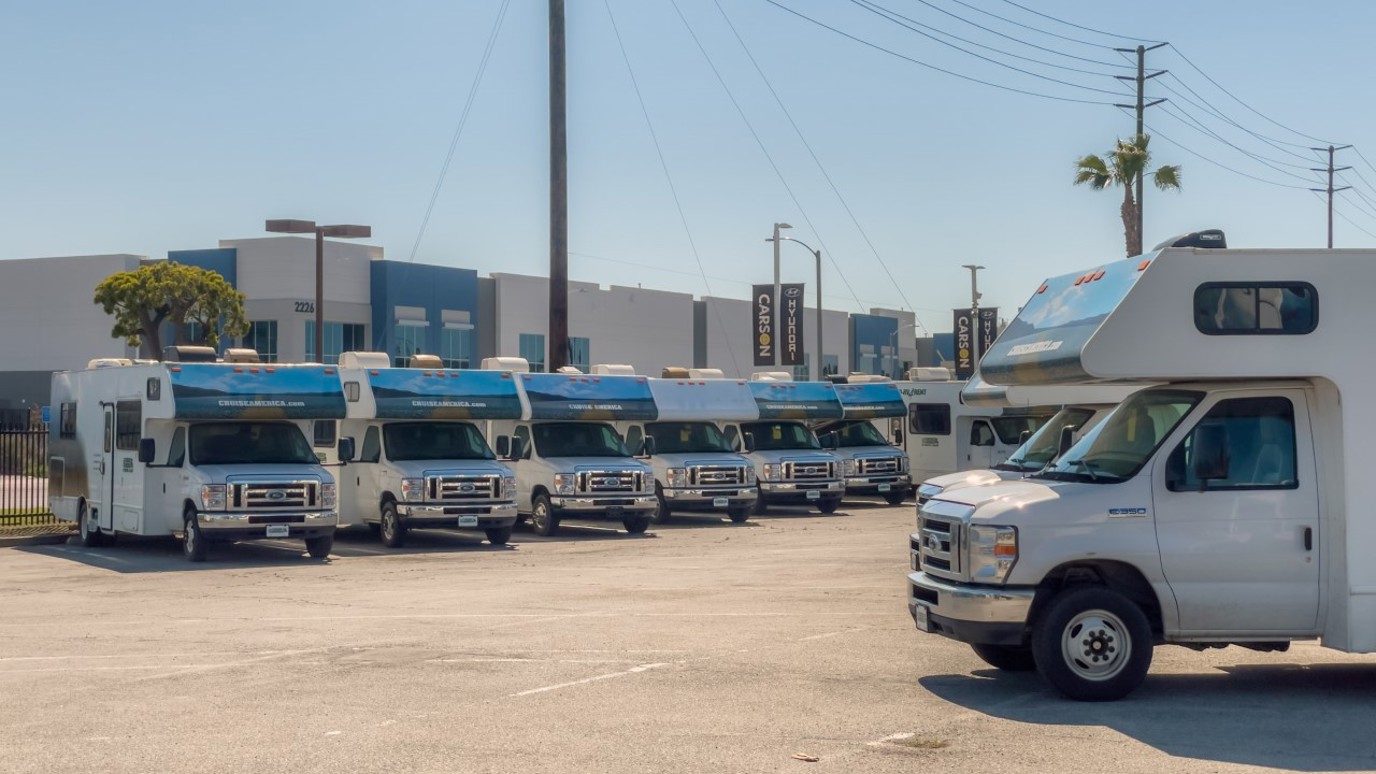
What’s the Difference between an RV, a Campervan and a Motorhome?
The terminology related to recreational vehicles (RVs), motorhomes, and campervans can be incredibly confusing, particularly for those looking to hire one in another country. Some commonly used terms to describe these types of vehicles are used interchangeably - however, there are distinct differences that set each of them apart.
If you’re looking to plan a road trip and are considering hiring or buying one of these vehicles, we’ve got you covered. Here, we dive straight into the definitions of each of these terms, explaining key attributes of each to help you decide which is best for you.
RV, campervan and motorhomes explained
So what’s the difference between a motorhome, campervan, RV and a camper?
The following table includes a brief description of each vehicle, their availability (UK or North America), the category they fall into and the type of user(s) they’d be suited to based on things like size.
|
What is it? |
UK or North America? |
Category |
Suitable for |
|
|
RV |
A recreational vehicle (RV for short) is an umbrella term for any vehicle or trailer that includes living quarters designed for accommodation. |
The term ‘RV’ is primarily used in North America. |
Class A, B and Cs |
It varies |
|
Camper |
Campers (or camper trailers) are motorised homes pulled behind your vehicle |
Available in both North America and the UK |
N/A |
Individuals and couples who don’t need much space |
|
Camper van |
Camper vans (or coach built motorhomes) typically feature an overhang on top of the driver’s cab containing a sleeping platform |
Available in both North America and the UK |
Class C |
Can sleep 4-6 people, suitable for families and groups of friends |
|
Motorhome |
Motorhomes, often referred to as A class RVs, are much larger vehicles that tend to have an integrated cab |
Available in both North America and the UK |
Class A |
Can sleep up to 6 adults, plus up to 2 children. Ideal for larger families or groups |
What is an RV?
RV - or recreational vehicle - is a general term used to describe any vehicle or trailer with living quarters. In North America, the term 'RV' could refer to any type of vehicle such as this, from large motorhomes to small camper trailers. RVs generally fall into one of three classes:
-
Class A
-
Class B, and
-
Class C
Each class has its own characteristics, sizes and price points.
What is a Camper?
In North America, the term camper typically refers to a recreational vehicle (RV) or a camping trailer that's specifically designed for living or camping. It's one of the smallest types of RV, offering basic amenities and facilities such as a bed area, basic cooking facilities, and a small bathroom or toilet. Campers tend to be used for shorter trips and camping holidays as it can be difficult to live in them long term given their space limitations.
There are various different types of campers available, from small, compact trailers designed to be pulled behind your vehicle, to smaller, self propelled campers which are a little less common. Fifth-wheel trailers also fall into this category, which are towable campers with a raised section that extends over the tow vehicle. Other options such as pop-up or folding campers are popular amongst.. You guessed it.. Campers! These are extremely lightweight and can be collapsed during travel, making them nimble and easy to park.
What is a Camper Van?
The term camper van is often used interchangeably with the term "camper", but as opposed to a Camper, camper vans in North America tend to be small vans that have either been converted to include living spaces or have been specially designed for this purpose.
Camper vans are generally much smaller than motorhomes and also tend to be more affordable. Some common examples of standard van chassis used for camper van models include Ford Transits and Mercedes-Benz Sprinters. In terms of facilities, camper vans are often more well-equipped than campers and trailers, offering a bed or convertible fold out sorta bed, a kitchenette and a bathroom area. These vehicles also tend to have more storage space than campers, making them a great option for couples and small families and groups. Camper vans are categorised as class B vehicles.
Cruise America will be launching camper van in 2024!
What is a Motorhome?
Last but certainly not least are motorhomes. These big beauties are an excellent choice for bigger groups and families with children, particularly those looking to go on longer road trips or even to live in permanently.
Motorhomes are available in a wide range of sizes and classes, ranging from smaller, smaller, more compact designs to lavish models almost as big as a house! They're fully self-contained and come equipped with electrical and plumbing systems as well as running water.
Interior-wise, motorhomes generally leave very little to be desired. With full, separate bathrooms, multiple sleeping areas, kitchen and dining areas and spacious lounges. They also tend to have lots of storage space, making them ideal for large families or big groups.
Are you thinking of planning a road trip?
We hope this piece has been useful in helping you to understand the differences between campers, camper vans, RVs and motorhomes! If you're interested in hiring a motorhome in North America, have a browse of our selection today or get in touch with a member of our friendly team who'd be more than happy to talk you through your options.





